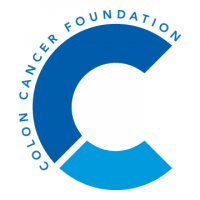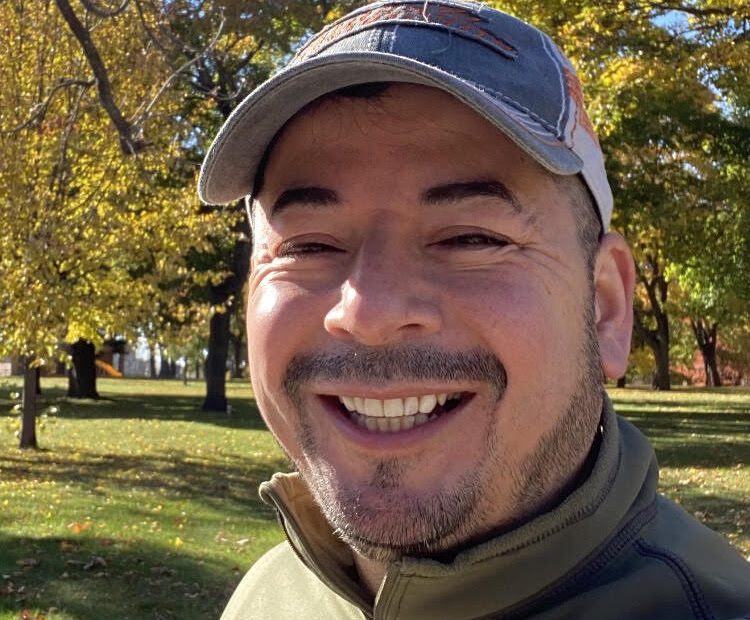Colorectal cancer (CRC) is one of the leading causes of cancer incidence and death in the U.S. The American Cancer Society (ACS) estimated 149,500 new diagnoses of CRC in 2021 and 52,980 deaths from the disease. Within these estimates, 16,500 diagnoses and 4,700 deaths were projected to be among the Hispanic population. While the overall rate of incidence and mortality is lower in the Hispanic population compared to non-Hispanic Whites, there are pockets within the U.S. where the rates among U.S.-born Hispanic men are higher than among non-Hispanic White men. The need to raise screening awareness, especially among younger individuals, is vital.
 Frank Loor is doing just that. A native of Ecuador whose family immigrated to the U.S. when he was a high schooler, Mr. Loor now lives in Michigan and is a Hearing Care Practitioner. Having recently become aware about CRC and how timely screening can prevent the cancer, Mr. Loor is on a mission to educate the Hispanic community about the existence of this disease and how it can be easily prevented. His platform? Social media!!
Frank Loor is doing just that. A native of Ecuador whose family immigrated to the U.S. when he was a high schooler, Mr. Loor now lives in Michigan and is a Hearing Care Practitioner. Having recently become aware about CRC and how timely screening can prevent the cancer, Mr. Loor is on a mission to educate the Hispanic community about the existence of this disease and how it can be easily prevented. His platform? Social media!!
Screening Barriers Exist Among Hispanic Communities
Research shows that Hispanics—the largest growing minority population in the U.S.—are less likely to undergo preventive screening. CDC data found that only 42% of Hispanic men and 47.5% of Hispanic women are current with CRC screening. Delayed diagnosis means the cancer will be diagnosed at an advanced stage, which can impact treatment outcomes. While lack of insurance coverage may affect screening rates, genetic traits such as type 2 diabetes and obesity increase the risk of colorectal polyps within the Hispanic population. Polyps, if left undiagnosed, can develop into cancer.
A recent study in a nationally representative Hispanic population identified several factors associated with the lower screening:
- Younger age
- Lack of insurance
- Limited access to a healthcare provider
- Less education and low income
Additionally, those who were employed or had good health were less likely to be up to date on their CRC screening, which may be because:
- Their employer does not provide time away from work for preventive care
- Healthy adults may not be keen on preventive care
Frank recently turned 50, and that’s when he had a conversation with his friend, Dr. Andrew Albert, a practicing gastroenterologist from Chicago and a member of the Interdisciplinary Medical Advisory Council of the Colon Cancer Foundation. “Dr. Albert gave me a crash course on CRC! I did not know that I was at the right age to get a colonoscopy—I had never really talked to a doctor about it,” Mr. Loor said. Although Mr. Loor has a general practitioner that he visits, he was keeping track of his cholesterol and blood pressure, but CRC was never discussed. “It was a miss that the importance of a colonoscopy was not discussed by my doctor, but I heard it from Dr. Albert who is a friend,” he said adding that while he doesn’t blame anyone, he is rather inspired to share the word.
As a fresh cancer advocate, Mr. Loor thinks that addressing the issue and talking about it is a good way to spread the message. He believes that will also help break through barriers such as shame associated with the site of this particular cancer.
There is also the cultural barrier, with the belief that men will not take time off from work and visit a doctor unless they are really sick. “I want to send the message out that it’s not just about the machismo,” Mr. Loor said. “It’s very important to us as a community that we are responsible for supporting our family, but we cannot be that person unless we get tested to prevent this disease,” he added. Mr. Loor also pointed to the fact that blood in the stool as a symptom may not be the reality for everyone—those who are asymptomatic can only find out about their pre-cancerous polyps if they get screened.
Motivated by a Friend’s Tragic Experience
A big motivation for Mr. Loor to be an advocate for CRC awareness is his very good friend George, who has been suffering from cancer for about three years. “We have been praying for George and his family—he has two beautiful daughters, a lovely wife, and has a wonderful house. He is a very hard worker, but his recent suffering meant George couldn’t go to work for the past three years.” It was only when Mr. Loor mentioned his CRC awareness efforts to George’s wife was when he found out that George has been suffering from CRC. “It really hurt that we had not talked about this earlier, that it could have been prevented, the suffering could have been prevented,” Mr. Loor said. “I feel even more responsible now to spread the message. If I am the Latino person that needs to tell you that you need to get checked, then I want to be that person,” he stressed.
Mr. Loor hopes that by spreading awareness about the existence of this cancer, the risk factors, and the fact that it is preventable among the Latino community, he can help people like his friend George reduce their risk of developing CRC. “Even now, he [George] doesn’t feel comfortable talking about it, but I do!”
“It becomes real when someone in your family passes away—be it your mom, your dad, a cousin, or an aunt or uncle. But that might be too late,” Mr. Loor said. He thinks the message and the informational resources should be made available through various channels and platforms, both digital and in-person. “Anything that we can do to get that one person to take the steps toward prevention and avoid suffering for themselves and their family, that is key,” he emphasized, adding that continued messaging, not just in the month of March (CRC Awareness Month), is important.
“It is so important for my Latino community to know that they should get tested for colorectal cancer starting at age 45, and even earlier if they have a family history of colorectal cancer. Get tested so you are sure you will be strong and able to help family members that you want to support.”
Frank just found out about CRC and has immediately taken the steps toward prevention and spreading the message in the community. YOU SHOULD, TOO!
Follow Frank on Social Media:

